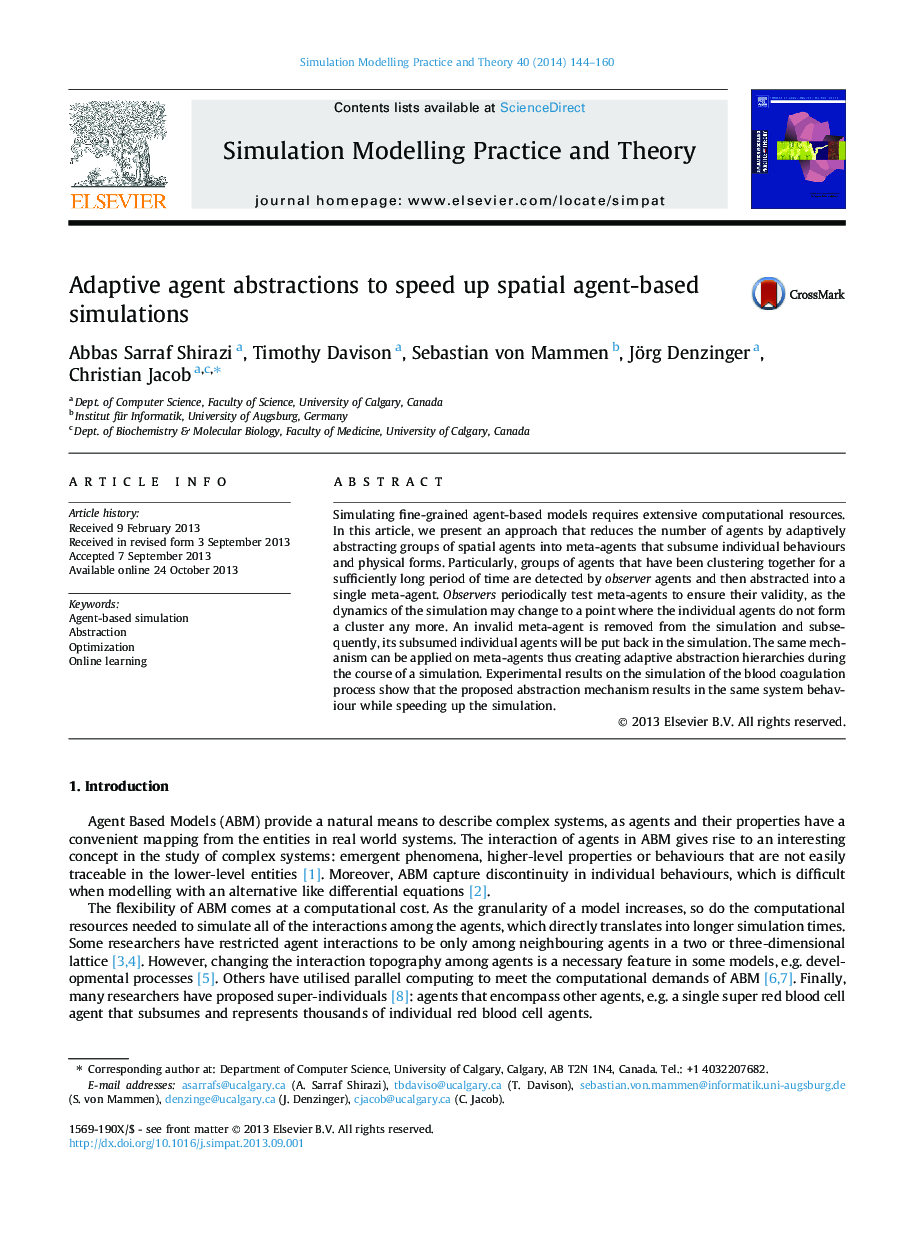| Article ID | Journal | Published Year | Pages | File Type |
|---|---|---|---|---|
| 492196 | Simulation Modelling Practice and Theory | 2014 | 17 Pages |
•We proposed a spatial agent abstraction framework that boosts the simulation speed.•We presented an unsupervised algorithm to validate the online abstraction process.•The abstraction was applied on an agent-based simulation of the blood coagulation.•The results were the same while the simulation speed was increased by 20%.
Simulating fine-grained agent-based models requires extensive computational resources. In this article, we present an approach that reduces the number of agents by adaptively abstracting groups of spatial agents into meta-agents that subsume individual behaviours and physical forms. Particularly, groups of agents that have been clustering together for a sufficiently long period of time are detected by observer agents and then abstracted into a single meta-agent. Observers periodically test meta-agents to ensure their validity, as the dynamics of the simulation may change to a point where the individual agents do not form a cluster any more. An invalid meta-agent is removed from the simulation and subsequently, its subsumed individual agents will be put back in the simulation. The same mechanism can be applied on meta-agents thus creating adaptive abstraction hierarchies during the course of a simulation. Experimental results on the simulation of the blood coagulation process show that the proposed abstraction mechanism results in the same system behaviour while speeding up the simulation.
